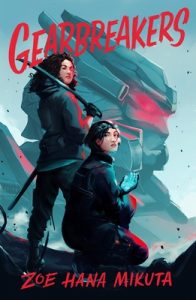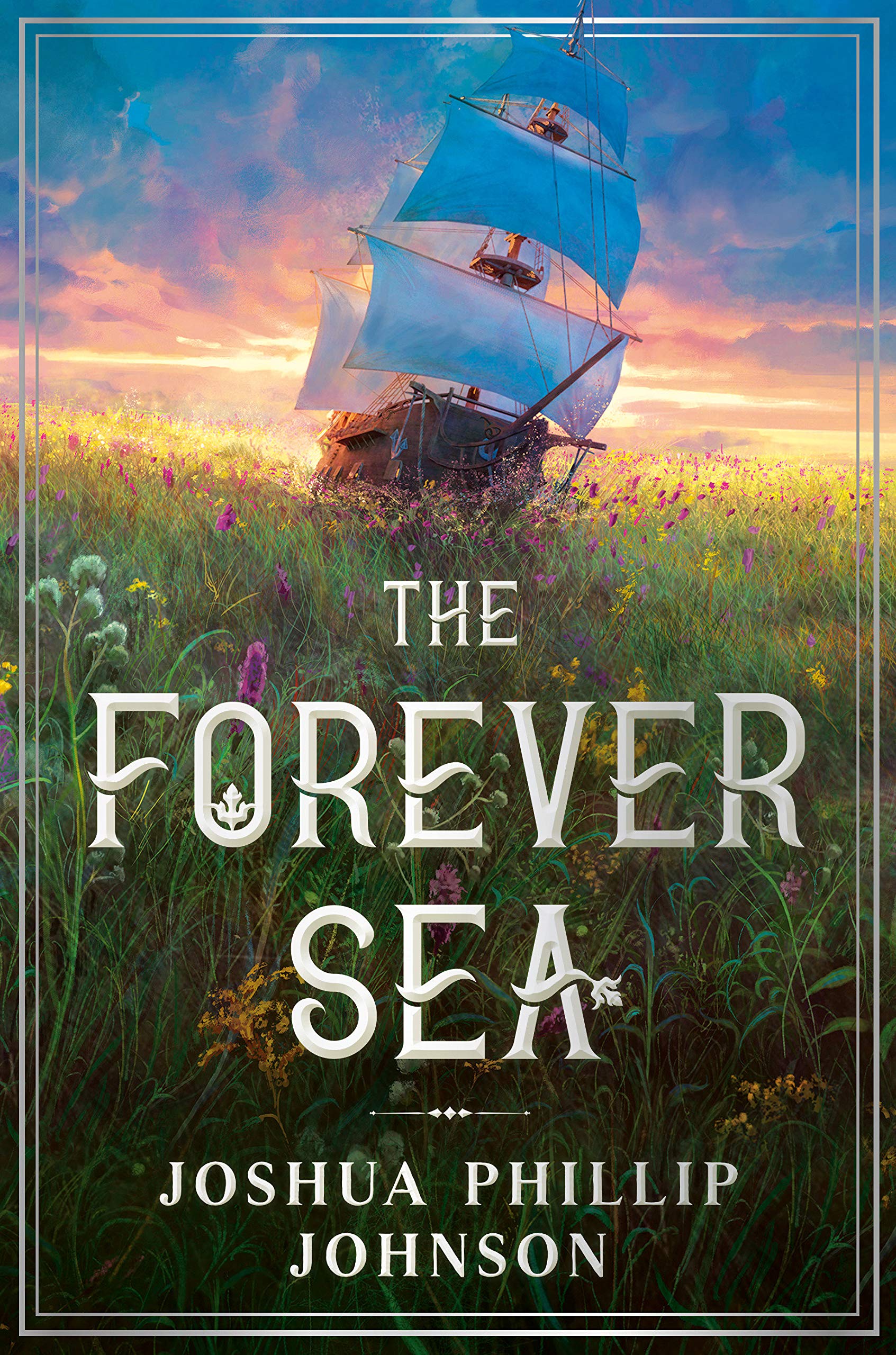Amazon Affiliate Link | Bookshop.org Affiliate Link
Gearbreakers bounces between high-octane mecha fights, rebellion, intense emotions, and savage banter. It’s a story about a wasteland outside a glittering, high-tech city. It has plot twists and schemes, and characters always willing to break the rules.
And somehow, it manages to be overwhelmingly dull.
The action scenes shine throughout the book. They unfold like sequences in films, tense and easy to imagine in striking visuals. Whether it’s two giant mechas duking it out or a truck full of adrenaline-fueled kids taking down a steelwork god, the battles deliver.
Unfortunately, very little else does. The book leans into a found family dynamic, but those characters are flat, only showing slight variance when it serves the plot. As I write this, having just finished the book, I can’t tell you the difference between Nova and June, or Theo and Arsen. They’re just… there. Their home, the Hallows, is a collection of buildings. It’s got a gate. I couldn’t tell you more. There’s something of a plot, but the one driving it is secondary character Jenny. Gearbreakers falls flat in so many ways.
One of the greatest flaws from which the book suffers is character-centered morality. I found myself genuinely disturbed with the number of times main character Sona kills other Pilots with little sense of remorse. Sona herself is a Pilot, and readers are expected to take at face value that she has a history, a personality, a value. The others don’t. They’re just evil. Similarly, when she arrives at the Gearbreaker compound, only one character remains consistently suspicious of her. He’s meant to seem jealous and hysterical, when having an enemy soldier wandering around the base should put everyone on edge. It asks too much of the reader: despise all other Pilots but support Sona, both without question.
I’m not someone who needs romance to be at the heart of a story. Actually, I prefer when it isn’t. In this book, the romance is mild, yet still so poorly handled. Eris and Sona never really seem like friends, romance is always clearly the endgame even during their contrived “enemies” phase—and Eris still has a boyfriend as she and Sona’s relationship develops. People grow apart and messy timing is often part of life, but rather than address it, the book simply vilifies her boyfriend to get him out of the way. It’s another contrivance and not a good look for a bisexual character to emotionally cheat before coldly kicking out her not-quite-ex boyfriend.
Finally, outside of vocabulary, the worldbuilding is extremely weak. What are the main industries of Godolia, other than war? I don’t know. What do the main characters eat? There’s a reference to popcorn and sweets; besides that, I don’t know. What sorts of religious rituals to mechvespers have? Not only do I not know, this worship of mechas is first mentioned about halfway through the book. It’s not clear how the world came to be this way besides passing references to wars. It’s not always necessary for all of these details to be included, but when I finish a book and realize I don’t know what the main setting is like and can’t quote an expression or unique turn of phrase, I feel somewhat like I’ve wasted my time.
Perhaps most frustrating of all, Zoe Hana Mikuta has talent. There are powerful scenes and moments of true poignancy throughout the book. In one delightfully unsettling scene, Sona thinks of her burning hatred for Godolia but is distracted by almost childlike delight thinking about peach tarts. Scenes like that are powerful and immersive. They’re standouts. They stand out from dullness and repetitiveness. Overall, this is not the book it could have been—and that’s a shame, because it could have been great.

